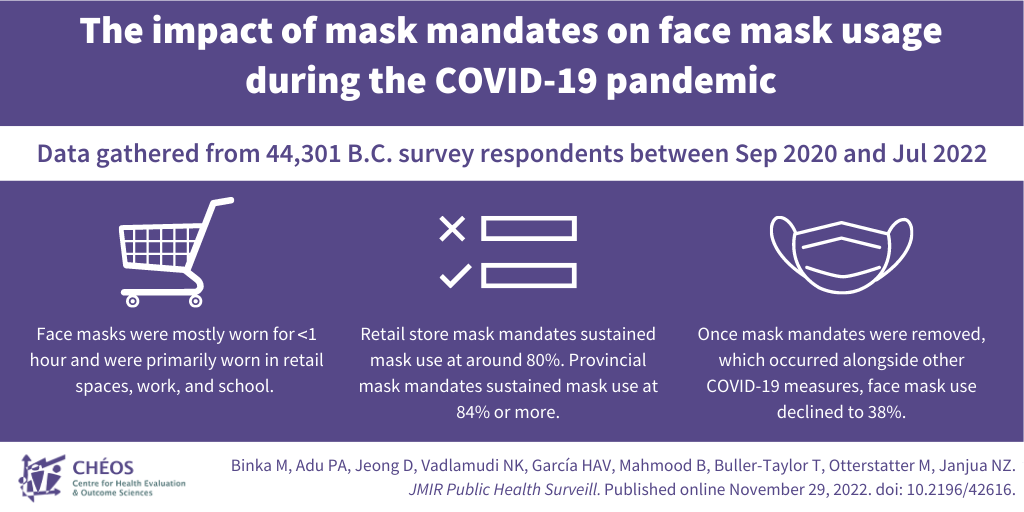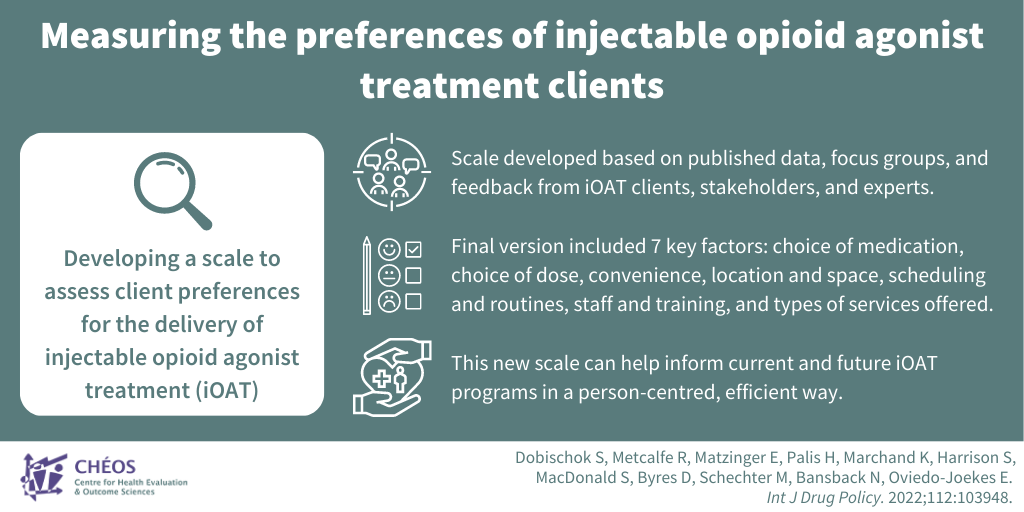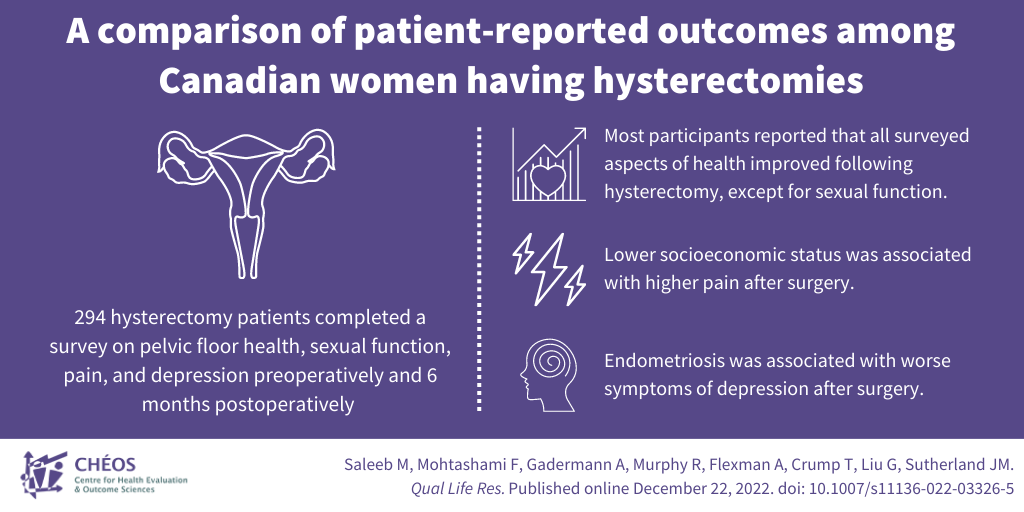The Evidence Speaks Series is a recurring feature highlighting the latest in CHÉOS research. This series features summaries of select publications and is designed to keep media and the research community up to date with CHÉOS’ current research results in the health outcomes field.
To ensure this research is quick and easy to share, we are now providing social cards that you are free to save and use as you see fit.
Mandates were effective in supporting the use of face masks in B.C. during COVID-19
Binka M, Adu PA, Jeong D, Vadlamudi NK, García HAV, Mahmood B, Buller-Taylor T, Otterstatter M, Janjua NZ. The Impact of Mask Mandates on Face Mask Usage During the COVID-19 Pandemic: A Longitudinal Survey Study. JMIR Public Health Surveill. Published online November 29, 2022.
CHÉOS Scientist Dr. Naveed Janjua analyzed data from the British Columbia COVID-19 Population Mixing Patterns (BC-Mix) survey to assess face mask use between September 2020 and July 2022. Of 44,301 respondents, 81.9 per cent reported wearing face masks outside of their homes the day prior to completing the survey. For the most part, marks were worn for less than an hour and were primarily worn in retail outlets, workplaces, and schools. The data also showed that mask use was supported by in-store, public transit, and provincial mandates. In fact, the likelihood of using masks was over three times greater when the provincial mandate was in place, compared with when it was not. Once mandates and other control measures were removed, mask use rates declined to 38 per cent. This study highlights the effectiveness of mask mandates when encouraging mask use in public settings during the COVID-19 pandemic.

—
New scale measuring client preferences could benefit opioid agonist therapy program planning
Dobischok S, Metcalfe R, Matzinger E, Palis H, Marchand K, Harrison S, MacDonald S, Byres D, Schechter M, Bansback N, Oviedo-Joekes E. Measuring the preferences of injectable opioid agonist treatment (iOAT) clients: Development of a person-centered scale (best-worst scaling). Int J Drug Policy. 2022;112:103948.
Consulting previously published data, 21 people who use opioids, and experts and stakeholders in injectable opioid agonist treatment (iOAT; including health care providers and policy-makers), a team from CHÉOS developed a scale to assess client preferences for how iOAT is delivered. The scale was tested and revised according to feedback from 18 iOAT clients, and later finalized following review by ten experts, stakeholders, and iOAT providers, plus testing with two iOAT clients. The final scale included seven factors that help identify iOAT client preferences for service delivery: “choice of medication, choice of dose, convenience, location & space, scheduling & routines, staff & training, and types of services offered.” This scale could be used to inform current and future iOAT program planning in an efficient, acceptable, and person-centred way.

—
Patients with lower socioeconomic status may report higher pain following a hysterectomy
Saleeb M, Mohtashami F, Gadermann A, Murphy R, Flexman A, Crump T, Liu G, Sutherland JM. A comparison of patient-reported outcomes among Canadian women having hysterectomies. Qual Life Res. Published online December 22, 2022.
CHÉOS Scientists Drs. Anne Gadermann and Alana Flexman joined CHÉOS Program Head of Health Services & Outcomes Dr. Jason Sutherland and colleagues to measure patient-reported outcomes of 294 people who have undergone a hysterectomy (surgical removal of the uterus). Study participants completed a survey on pelvic floor health, sexual functioning, pain, and symptoms of depression before their hysterectomy and six months after. The results highlighted that all aspects surveyed improved following a hysterectomy, apart from sexual functioning. Furthermore, lower socioeconomic status was found to be associated with higher postoperative pain. The presence of endometriosis was associated with worse symptoms of depression. These findings suggest that preoperative circumstances and symptoms could be screened in an effort to address and improve postoperative health-related quality of life for hysterectomy patients.




